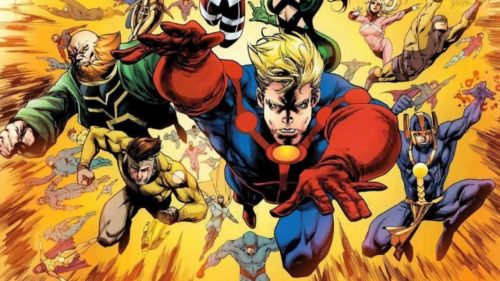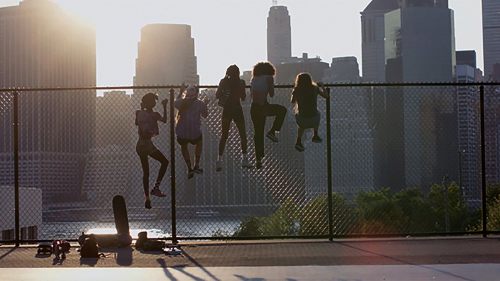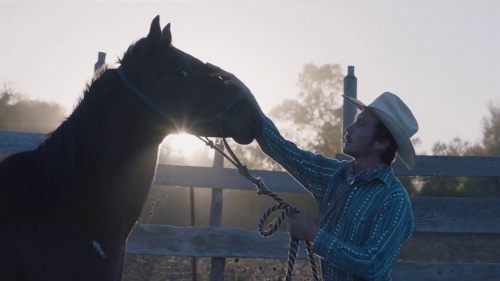NYFF Review: THE RIDER – On The Depths Of Love And Passion
A horse’s mane rustles in the warmth of night, lit by an un-seen source reflecting in its large brown eyes. You can feel the contours of its veins as it stomps down in slow motion, kicking up mud that dissipates into the midnight air with a familiar scent. This is the distinctly cinematic world we’re drawn in to during the opening minutes of the film. It is beautiful. It is ideal. It stretches infinitely across time – but it is not the world of Brady Blackburn, who awakens from this dream to the cold reality of his family’s trailer in South Dakota, and to dozens of staples in his head. He is The Rider, and he may never ride again.
Beijing-born Chloé Zhao might be one of American cinema’s most vital new voices, working at the nexus between tradition and modernity whilst telling distinctly Native American stories. Her debut feature Songs My Brothers Taught Me paralleled mourning for an absent father with the search for one’s place in contemporary America, and her 2017 follow-up feels just as (if not more) poignant. Regardless of its real-world history, the cinematic archetype of the cowboy has been built in direct opposition to the Native American. However Brady Blackburn, the local Lakota rodeo hero played by Brady Jandreau, has both these identities in his blood. His father Wayne (Tim Jandreau), a local wrangler, pisses their money away at bars and casinos, leaving him to look after his mentally challenged sister Lily (Lily Jandreau), even during his recovery from an injury that threatens his entire sense of self in the American heartland. Riding and training horses is all he’s ever loved, and all he’s ever known.
You may have noticed the actors share their last names. That’s no coincidence. The Blackburns of the film are the Jandreaus of South Dakota, a Native family for whom this life is their bread, butter and oxygen. Zhao’s commitment to realism doesn’t begin and end at her stylistic choices, though her unique eye for capturing the fabric that connects people to their surroundings is undoubtedly a boon. These are real people with real relationships up and down the cast, telling a story of the unique passions of riding and rodeoing, even to the point of self-destruction. They live their lives eight seconds at a time, and on the other side of those eight seconds lie either glory – numerous kids come up to Brady to wish him a speedy recovery – or injury to the point of disability.
Brady’s love for riding and breaking-in horses is rivaled only by his love for the people around him, though the two loves find themselves both interlinked and at odds with one other. Getting back on a horse could kill Brady, leaving no one to look after his sister, but it could also leave him in a condition like his best friend Lane (played by the real life Lane Scott), a former bull rider in a wheelchair who can only communicate through the mildest of hand gestures.
Brady’s love for Lane is palpable; not only is he on his way to getting a tattoo of him on his back, but he visits his rehab facility as often as possible. In lieu of training real horse he helps Lane mount pommel horse, handing him the reins and simulating the turns and sudden stops. It’s one of the few things that still makes Lane smile, along with re-watching their rodeo videos together on YouTube. Lane may not have the physical ability to ride anymore, but his spirit is undoubtedly still connected to it. Even his neurological spasms, which have him bouncing up and down at times, feel spectrally reminiscent of his passion.
It’s this passion that permeates every scene, for better and for worse. Whether it’s Brady training and comforting a new horse when he shouldn’t be (in lengthy, unbroken takes that allow us to see both Brady Blackburn and Brady Jandreau doing what they do best: finding spiritual connections beyond words), or working the checkout counter at the local supermarket as he repeatedly answers admirers’ inquiries with “I’m just workig here while I’m healing up,” even though he’s begun having minor seizures of his own. Until he decides what to do with his future, either risking it all or walking a new and unfamiliar path, he’s stuck between worlds and between states of existence.
Jandreau’s performance is especially moving. His all-too-familiar masculine restraint gives way to equally familiar frustrations as he lashes out (both passive aggressively and, quite simply, aggressively) at friends, family, and anyone who might have his best at heart if that best involves keeping him from the only thing he’s good at. All he’s ever known about himself has been called into question, and it’s even put to the test when a horse he’s fond of gets it leg trapped in barbed wire and needs to be put down. Can he do “what needs to be done” even though this beautiful creature’s metallic gash is reminiscent of his own injury, and its upward and downward spasms are reminiscent of a man he calls his brother? Do his and Lane’s injuries make them useless as well?
Is there any way to move on from loving something, something residing in every fiber of your being, and then having it snatched away from you?
Zhao provides no easy answers to what may be an un-answerable question, but she articulates that question thoughtfully. The love she feels for this part of America is as real as the love between these broken Native characters, who search for meaning in the present after their pasts that have been stolen from them. The thing that is fundamental to who they are at their core may only have one truly satisfying external form – the wind touching their hair as they ride through the prairie, and the feeling of purpose it brings – but it’s finding new ways to express those passions, in a world moving forward without them, on which their spiritual survival depends.
Wherever the answers may lie, somewhere far off in the distance or deep within your soul, The Rider is the heartbreaking journey to finding them.



